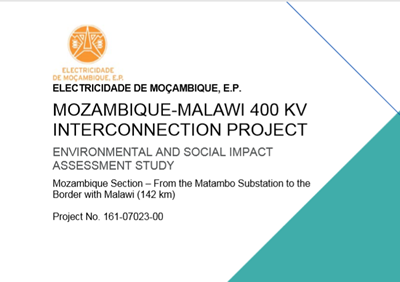
Mozambique is part of the Southern African Power Pool (SAPP) whose purpose is to meet the electricity needs of its member countries, ensuring that their production is based on renewable natural resources without unsustainable effects on the environment.
In 1995, at the time of the creation of the SAPP, only the electrical utilities of nine of the twelve members (countries) were already interconnected that is, Botswana, the Democratic Republic of Congo, Lesotho, Mozambique, Namibia, South Africa, Swaziland, Zambia and Zimbabwe. The remaining member countries that would need to be connected were Angola, Malawi and Tanzania. The SAPP’s 2013 Annual Report the Mozambique-Malawi Interconnection was identified as a high priority project since it ensures that all member countries are interconnected.
On April 3rd, 2013, the Governments of Malawi and Mozambique signed a power interconnection agreement that includes two phases: (i) the construction of the Mozambique-Malawi 400 kV transmission line from the existing Matambo substation in Tete - Mozambique, to the projected Phombeya substation in Balaka - Malawi; and (ii) the construction of a second transmission line from Balaka - Malawi, to Nacala - Mozambique. The current report only considers the first phase of this interconnection agreement and concentrates on the Mozambique section.
To download the complete document click here














